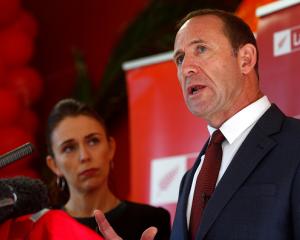The wowser element in New Zealand society - never far below the surface - will have had much to tut-tut about with the ministerial credit-card details emerging from Parliament.
With some 7000 pages of material to study, disclosed to the public at a cost of some $50,000, there will likely still be a few nervous moments for some politicians.
Many members of the public and probably most of the media have long suspected politicians have so designed their professional way of life in such a manner as to rort the taxpayers as often and as deeply as they can get away with, surrounded such behaviour with a thicket of prohibitions on disclosure, and adopted denial as the first defensive posture when challenged.
The accusatory brush has been broad, yet as the recent disclosures show, unfairly so. By no means all present and former ministers have abused their special privileges at our cost; indeed, several have been quite circumspect, using their ministerial credit card with caution and within the rules.
It is to the point to note that the most experienced ministers and former ministers, including almost all party leaders, have been careful. This may partly be explained by having more experienced staff with them to look after such details as expenses spending.
The exceptions have been disappointingly cavalier with their private spending and their hypocrisy for doing so while generally railing against wasteful state spending will do their reputations no good whatsoever.
Winston Peters has denied using his credit card, but it is clear from the records that his staff charged many items to it claiming they were expenses, never mind a reminder of the "unarguable" policy that credit cards not be used for personal expenditure, regardless of repayment.
Jim Anderton was also shown to have used his card for a massage and spa services for himself and his wife while on Labour government business.
Others have treated the taxpayer-funded card just as carelessly, but on a far greater scale. The contrast on television between the smirking former Labour minister Chris Carter and his shamefaced colleague Shane Jones perhaps spoke volumes about attitudes.
Mr Carter, one of the biggest expenses spending MPs in government and out of it, was repeatedly warned about inappropriate use of his card but still used it to pay for films and a spa in hotels, has repaid some money and says he will reimburse any other wrongful spending that is discovered.
Mr Jones, once regarded as a potential leader of the Labour Party, now finds his political career in tatters, having used his card virtually as a personal account, including for renting pornographic films, among much else besides.
His leader, Phil Goff, cannot possibly keep him in his present job or position in the Labour shadow cabinet. Mr Jones is not alone, however.
The disclosures about former junior minister Mita Ririnui's misuse, including buying golf clubs, as well as the spending of Rick Barker, raise questions about their place in the caucus.
Of the present Government ministers, attention has focused on the Minister of Trade, Tim Groser, for his spending on dinners and drinks, but given his position the level hardly seems to be outrageous.
This scandal hardly compares with the recent exposure in Britain of politicians using expenses to allegedly pay for property investment, mistresses, and even moat cleaning. Personal humiliation and damage to reputations aside, there will be some good from what is an overblown local exercise.
Members of Parliament will be more careful with the attractions of high office, now that they know the public have a higher level of expectation about their behaviour.
The laxity, carelessness and clearly deliberate abuse of taxpayer money for personal entertainment and purchases would seem to be over for the time being, at least.
While some claimed expenses undoubtedly are subjective, the need to produce credit-card and reconciliation statements is not, and many ministers have had to be reminded again and again to do so.
This speaks of an attitude of "getting away with it"; the new transparency might dilute the arrogance of some MPs, and the Auditor-general's forthcoming report into the review of the system and the way the rules work should further assist in improving public confidence in politicians.
It should also examine whether ministers need such cards, when their staff assistants could routinely deal with expenses - as once they did.









